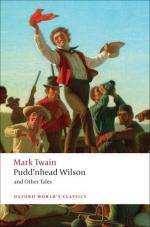This, for a profoundly embittered minority constructed out of fire and gun-cotton! It was time for idle strangers to go and ask leave to look down out of a gallery and see what would be the result of it.
II. A MEMORABLE SITTING.
And now took place that memorable sitting of the House which broke two records. It lasted the best part of two days and a night, surpassing by half an hour the longest sitting known to the world’s previous parliamentary history, and breaking the long-speech record with Dr. Lecher’s twelve-hour effort, the longest flow of unbroken talk that ever came out of one mouth since the world began.
At 8.45 on the evening of the 28th of October, when the House had been sitting a few minutes short of ten hours, Dr. Lecher was granted the floor. It was a good place for theatrical effects. I think that no other Senate House is so shapely as this one, or so richly and showily decorated. Its plan is that of an opera-house. Up toward the straight side of it—the stage side—rise a couple of terraces of desks for the ministry, and the official clerks or secretaries—terraces thirty feet long, and each supporting about half a dozen desks with spaces between them. Above these is the President’s terrace, against the wall. Along it are distributed the proper accommodations for the presiding officer and his assistants. The wall is of richly coloured marble highly polished, its paneled sweep relieved by fluted columns and pilasters of distinguished grace and dignity, which glow softly and frostily in the electric light. Around the spacious half-circle of the floor bends the great two-storied curve of the boxes, its frontage elaborately ornamented and sumptuously gilded. On the floor of the House the 425 desks radiate fanwise from the President’s tribune.
The galleries are crowded on this particular evening, for word has gone about that the Ausgleich is before the House; that the President, Ritter von Abrahamowicz, has been throttling the Rules; that the Opposition are in an inflammable state in consequence, and that the night session is likely to be of an exciting sort.
The gallery guests are fashionably dressed, and the finery of the women makes a bright and pretty show under the strong electric light. But down on the floor there is no costumery.
The deputies are dressed in day clothes; some of the clothes neat and trim, others not; there may be three members in evening dress, but not more. There are several Catholic priests in their long black gowns, and with crucifixes hanging from their necks. No member wears his hat. One may see by these details that the aspects are not those of an evening sitting of an English House of Commons, but rather those of a sitting of our House of Representatives.




